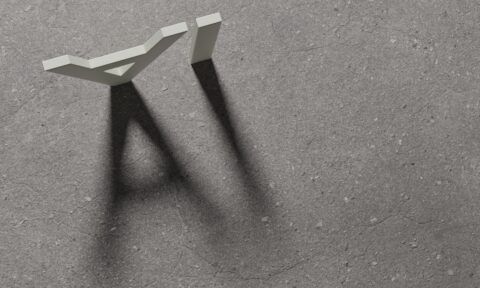CFD and Hydrodynamics for Ships
- Online CFD and Hydrodynamics course for ship design. Predict vessel performance virtually using CFD tools. Engineers and scientists in ship design benefit. Course covers CFD techniques for ship design. Lectures provide broad understanding of CFD applications.
Overview
Online CFD and Hydrodynamics for Ships Training is designed to provide engineers and scientists involved in ship design with a comprehensive understanding of Computational Fluid Dynamics (CFD) technology. The course covers topics such as turbulent flows, ship geometry modeling, CFD applications, turbulence modeling, hull optimization, and propeller numerical methods. Attendees from ship management, oil companies, classification societies, and ship builders will benefit from the innovative content and structure that balances theory and practice. The course aims to equip participants with the knowledge and skills to apply CFD techniques effectively in ship design.
Who should attend
Engineers, Scientists, Ship Designers, Ship System Designers.
Course Content
Computational Fluid Dynamics (CFD) technology is now a well-established design tool for ships to predict accurately its performance and is gradually replacing towing tanks. With the right CFD tools, every aspect of the vessel design and performance can be investigated virtually, well before the vessel goes into production. The advantage for the maritime industry from CFD analysis is extensive. The benefits are far greater, as compared to other industries.
Commercial ship vessels in particular can benefit hugely by using this technology. The syllabus will include Introduction to CFD, Numerical modelling of curves and surfaces, Discretization of ship hull form, Fluid flow dynamics around ships and submarines, Turbulence modelling, Finite volume method as applied to ship flows, Numerical method for computing propeller thrust/ torque.
The course is designed in such a way that at the end of the lectures, the person will have a very broad understanding of the application of CFD techniques for ship design.
Who Should Attend
Location
Course Syllabus
Day 1
09.00 – 10.30 Lecture 1: Basic CFD, Instructor: Prof. H. V.
Warrior – Introduction to turbulent flows, statistical averaging, RANS
equations, Eddy viscosity hypothesis
10.30 – 10.45 Break
10.45 – 12.15 Lecture 2: Numerical modelling of ship and
propeller geometry 1, Instructor: Prof. O. P. Sha
Engineering CAD systems; Curve representation, analytical and
parametric representation of curves; Differential geometry of curves;
Interpolation techniques, control polygon techniques; Curve generation;
Ship curve design; Interrogation and fairing techniques for curves.
12.15 -12.45 Lunch
12.45 -14.15 Lecture 3: CFD for Ship applications, Instructor:
Prof. H. V. Warrior CFD case studies- flow near ships and
submarines, detection through CFD, strategies and way ahead.
14.15 – 14.30 Break
14.30 – 16.00 Lecture 4: Numerical modelling of ship and
propeller geometry 2 Instructor: Prof. O. P. Sha Surface representation, analytical and parametric representation of surfaces; Differential geometry of surfaces; Surface interpolation techniques, control polygon techniques; Surface generation; Interrogation and fairing techniques or
surfaces; Ship surface design, ruled surface, developable surface, low curvature
surfaces.
Additional Information
Dr. Vishwanath Nagarajan
Dr. Vishwanath Nagarajan is an Associate Professor in the Department of Ocean
Engineering and Naval Architecture, IIT Kharagpur. His broad area of research is ship
and underwater vehicle dynamics and fluid dynamics. He is involved in teaching several
subjects for under graduate and post graduate students. Dr. Vishwanath graduated from IIT
Kharagpur, B.Tech (Naval Architecture), in 1995. After graduation, he joined as a Naval
Architect in The Shipping Corporation of India Ltd., Mumbai. Here he was involved in
ship building, ship construction, and ship maintenance work. During this time, he got
Japanese Government Scholarship (Monbukagakusho) to do Masters and PhD at
Osaka University, Japan. After completing PhD, he worked for a short time as a Post
Doctoral researcher in Pusan National University, South Korea. Thereafter, he
joined IIT Kharagpur in 2009 as faculty. He has supervised numerous undergraduate and
postgraduate research projects, besides guiding Ph. D. students. He has published
several papers in peer reviewed international journals and international conferences. He is
involved in several sponsored research and technical consultancy work. Dr. Vishwanath
is a reviewer for Internationally reputed journals like Journal of Marine Science and
Technology, Ocean Engineering, JEME and Applied Ocean Research. He has been
invited for reviewing PhD/MS thesis and conducting PhD viva examination. He has
been in the organizing committee of several international conferences. He is a member
Japan Society of Naval Architects andOcean Engineers (JASNAOE).
Professor H. V. Warrior
Prof. Hari Warrior joined the department of Ocean Engineering and Naval Architecture
of IIT Kharagpur in 2004. He joined as an Assistant Professor with a background in
Naval Archtiecture and Fluid Mechanics/Oceanography. He had worked
extensively on flow turbulence during his PhD and further. He worked mainly on the
Reynolds stress models and various parameterisations for the pressure-strain
correlation formulations. He later became an Associate Professor and then Professor. He
has done numerous high profile projects, especially the detection of ships/submarines
through their wake signature using CFD. Recently he has been associated with the
design of bio-mimetic inspired AUVs for the Indian Navy. In 2019 October he took over as
the Head of the department and is serving the post currently. He has numerous publications
to his credit.
Professor O. P. Sha
Dr O.P Sha received his B.Tech. (Hons.) degree in Naval Architecture from the
Indian Institute of Technology, Kharagpur in 1980; M.Sc. in Ship Production
Technology from the University of Strathclyde, Scotland, United Kingdom, in
1982; and Ph.D. in Engineering from the Indian Institute of Technology, Kharagpur
in 1996. Presently, he is a Professor in the Department of Ocean Engineering and
Naval Architecture. He was the Head of the Department of Ocean Engineering and
Naval Architecture from October 2010 to September 2013 and subsequently the Dean
of Continuing Education from October 2013 to September 2016 at the Indian Institute of
Technology, Kharagpur. He teaches a wide variety of subjects at the Institute and his
main areas of interest include ship design and production, CAD/CAM and high
performance vehicles. He is currently involved in a number of sponsored research
and industrial consultancy projects with DRDO, Indian Navy, Ministry of Shipping,
Garden Reach Shipbuilders and Engineers Limited, Cochin Shipyard Limited, L&T
Shipbuilding, Kolkata Port Trust, IWAI, SHOFT Shipyard, etc. He is the Chairman,
Hydrodynamics Panel of Naval Research Board, Govt. of India. He has a number of
publications in the area of Ship Design and Production and has guided a number of
doctoral and postgraduate students. He has been entrusted by the Sagarmala Cell of
Ministry of Shipping and IIT Kharagpur to head the Centre for Inland and Coastal
Maritime Technology (CICMT) at IIT Kharagpur where the country’s first
shallow/deep water seakeeping and manoeuvring basin for ship-model testing
will be set up. This will provide impetus to research and development in the area of
inland and coastal maritime technology.



